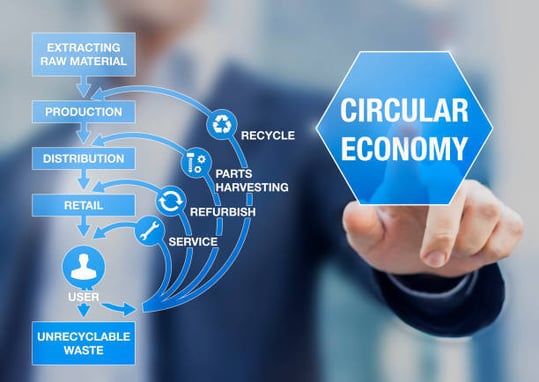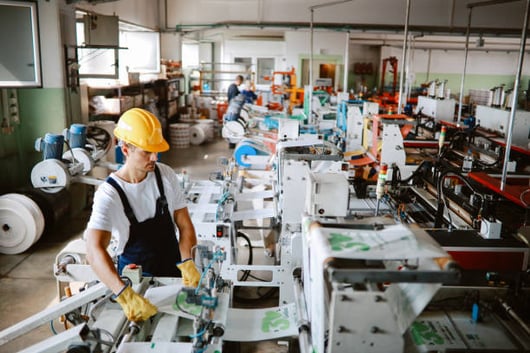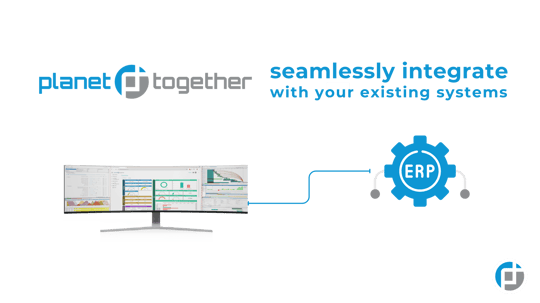
Closing the Loop: How APS Scheduling Enables Circular Economy Models in Packaging Manufacturing
As sustainability takes center stage in 2025, packaging and container manufacturers are under immense pressure to go beyond recycling and embrace full circular economy models. Customers demand eco-friendly solutions, regulators impose stricter mandates, and brand owners seek packaging that aligns with ESG goals. The transition from linear to circular isn’t just ethical—it’s rapidly becoming essential for market relevance.
But moving to a circular economy isn’t simply a matter of switching materials. It requires a deep transformation of how packaging is designed, sourced, produced, reused, and rescheduled. That’s where Advanced Planning and Scheduling (APS) systems—especially PlanetTogether APS—play a pivotal role.
By integrating with enterprise platforms like SAP, Oracle, Microsoft Dynamics, Kinaxis, or Aveva, PlanetTogether enables packaging manufacturers to implement circular models at scale—without sacrificing operational performance, flexibility, or profitability.

What is a Circular Economy in Packaging Manufacturing?
A circular economy is an economic system aimed at eliminating waste and maximizing resource reuse. In packaging and containers manufacturing, this involves:
Designing for reuse, recyclability, and compostability
Using recycled or bio-based materials
Tracking packaging through multiple use cycles
Creating closed-loop supply chains that recover and reintroduce materials into production
Unlike traditional linear models—take, make, dispose—circular packaging systems require highly responsive production planning and material management, especially when working with variable input quality, shorter material life cycles, and tighter quality standards.
Operational Challenges of Circular Models Without APS
Shifting to circular production introduces several scheduling and supply chain complexities, including:
Unpredictable Input Quality and Availability
Recycled materials often vary in grade, quantity, and availability—disrupting production consistency.
Frequent Changeovers
Different material streams (e.g., post-consumer resin, bioplastics) require unique handling and setup protocols.
Extended Supply Loops
Closed-loop logistics (e.g., returnable containers) introduce new lead times and traceability needs.
Dynamic Customer Demand
Sustainability-conscious clients demand rapid customization, new formats, and small-batch runs.
Regulatory Compliance
New standards for labeling, sourcing, and emissions require traceable production adjustments.
Without a dynamic, real-time planning engine, circular economy efforts can lead to delays, inefficiencies, and increased operational costs—undermining their sustainability and commercial potential.

How PlanetTogether APS Enables Circular Production Models
PlanetTogether APS brings the agility, visibility, and intelligence needed to make circular manufacturing not just sustainable—but scalable and profitable. Here's how:
Real-Time Visibility into Recycled and Virgin Material Flows
PlanetTogether, integrated with SAP S/4HANA, Oracle Cloud, or Microsoft Dynamics, provides real-time insight into:
Incoming recycled material availability
Inventory levels of bio-based or compostable inputs
Supplier lead times and variability
This allows the APS engine to dynamically adjust production schedules based on what materials are on hand, maintaining continuity despite variable supply quality.
Optimized Scheduling for Complex Material Requirements
With powerful constraint-based scheduling, PlanetTogether can:
Minimize changeovers between material types (e.g., recycled PET vs. virgin PET)
Prioritize high-recovery or low-impact materials
Sequence runs to reduce contamination risks or additional cleaning
By clustering similar production runs and automatically adjusting setups, PlanetTogether maximizes machine utilization while supporting a diverse, circular material portfolio.
Predictive Scenario Planning for Closed-Loop Logistics
PlanetTogether’s simulation tools allow planners to evaluate:
Impacts of delayed returns in reusable container programs
Best timing to introduce regrind materials into production
Trade-offs between using virgin and recycled content based on emissions or cost targets
These predictive insights help manufacturers optimize both sustainability and efficiency, striking a balance between circular goals and real-world constraints.
Integrated Compliance and Sustainability Tracking
PlanetTogether APS enforces scheduling rules that align with:
Regulatory limits on virgin material use
Corporate sustainability KPIs (e.g., carbon per unit, recycled content thresholds)
Batch traceability for audits and certifications (e.g., FSC, ISCC, BRC)
When integrated with Aveva MES or Kinaxis RapidResponse, PlanetTogether becomes the nerve center for circular compliance, automatically aligning operations with evolving policies.
Agile Customization for Eco-Friendly SKUs
Mass customization is critical in circular packaging—customers want sustainable materials in custom formats. PlanetTogether enables:
Quick adjustment of schedules for short-run, low-waste SKUs
Alignment of packaging type to available sustainable materials
On-time fulfillment of environmentally certified product lines
All while reducing planner workload and manual interventions.
Business and Environmental Performance Gains
Companies leveraging PlanetTogether APS in circular packaging models report strong dual-impact results:
| Area of Impact |
Result Achieved |
| Material Waste Reduction |
−20–35% |
| Changeover Time Decrease |
−25% |
| Machine Utilization Increase |
+15–30% |
| Sustainable Order Fulfillment |
+25–40% |
| Compliance and Traceability |
Improved Audit Readiness (100%) |
These gains not only support ESG goals—they reduce cost, improve reliability, and enhance brand reputation in sustainability-focused markets.
Circular economy models are no longer optional in packaging manufacturing—they're an imperative for regulatory compliance, consumer trust, and long-term viability. But without agile and intelligent scheduling, circular efforts can become operational burdens.
PlanetTogether APS makes circular production a strategic asset. By integrating seamlessly with systems like SAP, Oracle, Microsoft, Kinaxis, and Aveva, it enables packaging manufacturers to plan smarter, waste less, and scale sustainability with confidence.
With PlanetTogether, manufacturers don’t just close the loop—they accelerate performance within it. Are you ready to take your manufacturing operations to the next level? Contact us today to learn more about how PlanetTogether can help you achieve your goals and drive success in your industry.